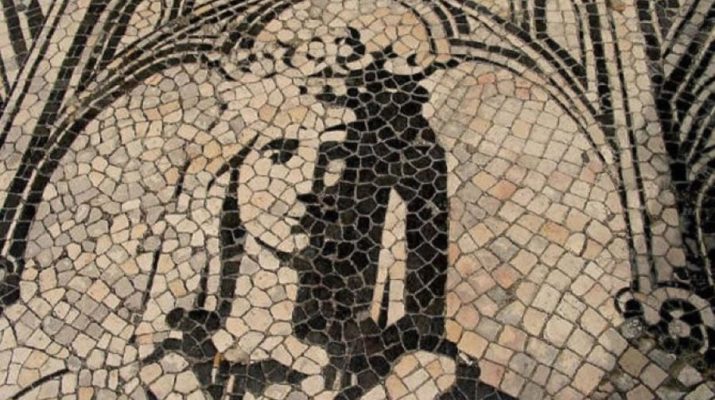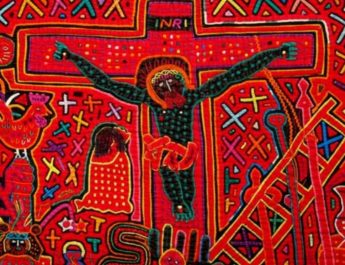Proverbs 9:1-6
Ordinary B38
1 WisdomA has builtB her house,C
A “wisdom” = chokmoth. 5x in OT– 3x of lady wisdom in Proverbs 1, 9, and 14. From the same as chokmah (wisdom, wit, skillfulness); from chakam (to be wise or teach wisdom; this is wisdom in thought, word, or action). This is wisdom or wise woman.
B “built” = banah. This is to build, make, set up, restore, repair, or obtain children. It is to build literally or figuratively.
C “house” = bayit. Related to “built” in v1. Probably from banah (see note B above). This is house, court, family, palace, temple.
she has hewnD her sevenE pillars.F
D “hewn” = chatsab. This is to hew or cut material like wood or stone. It can also be to dig, quarry, split, or engrave.
E “seven” = sheba. This is seven or by sevenfold. It can also be used to imply a week or an indefinite number. Symbolically, this is the number of fullness, sacredness, perfection.
F “pillars” = ammud. From amad (to stand up in a literal or figurative sense; to establish, continue, endure, take a stand, act, be a servant, stand still, remain, stand against an enemy). This is a pillar, stand, or platform.
2 She has slaughteredG her animals,H she has mixedI her wine,J
she has also setK her table.L
G “slaughtered” = tabach. 11x in OT. This is to slaughter or butcher. It can be used to refer to animals or people.
H “animals” = tebach. Related to “slaughtered” in v2. 10x in OT. From tabach (see note G above). This is slaughtering, an animal, meat, a place where things are butchered. It can also refer to somewhere that slaughter happens more broadly.
I “mixed” = masak. 5x in OT. This is to mix or mingle. It is often used in reference to wine.
J “wine” = yayin. Root may mean to effervesce, referring to the fermentation process. This is wine, grape, or banquet. It can imply intoxication.
K “set” = arak. This is to arrange by setting in a row. It can also mean to set a battle, estimate, put in order, or compare.
L “table” = shulchan. Perhaps from shalach (to send, send for, forsake). This is a table or meal.
3 She has sent outM her servant-girls,N she callsO
M “sent out” = shalach. Related to “table” in v2. See note L above.
N “servant-girls” = naarah. From naar (child or a servant; a child in their active years so they could be aged anywhere from infancy to adolescence); perhaps from naar (to shake, toss up and down, tumble around). This is a girl or young lady ranging anywhere in age from infancy to adolescence.
O “calls” = qara. This is to call or call out – to call someone by name. Also used more broadly for calling forth.
from the highestP placesQ in the town,R
P “highest” = marom. From rum (to be high, rise, exalted, become proud, display, offer, present, set apart, extol; to rise in a literal or figurative sense). This can be height, high place, or lofty. It can be either exalted or haughty/proud. It can refer to dignity or to heaven.
Q “places” = gaph. 4x in OT. Root may refer to an arch. This is body, self, or alone. It could also refer to height or elevation.
R “town” = qereth. 5x in OT – 1x in Job and 4x in Proverbs. From qarah (to happen, meet, bring about). This is a towny or city.
4 “You that are simple,S turnT in here!”U
To those withoutV senseW she says,
S “simple” = pthiy. 19x in OT. From pathah (to be simple, entice, deceive, persuade, allure, be silly); from pethi (simple, silly, foolish, easily deceived); from pathah (to be wide open, deceive, entice, persuade, to be simple, delude). This is open-minded, simple, silly, foolish, or seducible.
T “turn” = sur. This is to turn aside in a literal or figurative sense – to depart, decline, rebel, remove, or withdraw.
U “here” = hennah. Perhaps from hen (lo! Behold! If, though; an expression of surprise). This is here in a location or here in a time, i.e. now.
V “those without” = chaser. 19x in OT. From chaser (to lack, need, become empty, to fail). This is needy, lacking, without, void, or destitute. This is “I shall not want” from Psalm 23:1.
W “sense” = leb. May be related to labab (to encourage; properly, to be encased as with fat; used in a good sense, this means to transport someone with love; used in a bad sense, it can mean to dull one’s senses). This is the heart, courage, one’s inner self, the mind, or the will. Heart is only used in a figurative sense in the Old and New Testaments.
5 “Come,X eatY of my breadZ
and drinkAA of the wine I have mixed.
X “come” = halak. This is go, come, walk. It is walk literally and figuratively and includes people and animals. It can be used figuratively for one’s moral life – how we walk according to God’s way or against it. It can also refer to the walk of life as in the course one’s life takes, the choices we make, etc.
Y “eat” = lacham. This is to eat or feed on. Figuratively, it is to battle as a kind of consumption/destruction.
Z “bread” = lechem. Related to “eat” in v5. From lacham (see note Y above). This is bread, food, loaf. It can refer to food more generally for people or for animals.
AA “drink” = shathah. This is to drink literally or figuratively. It could also be a drinker.
6 Lay asideBB immaturity,CC and live,DD
and walkEE in the wayFF of insight.”GG
BB “lay aside” = azab. To loosen, relinquish, permit, forsake, fail, leave destitute.
CC “immaturity” = pthiy. Same as “simple” in v4. See note S above.
DD “live” = chayah. This is to live or keep alive in a literal or figurative sense. So, it an be revive, nourish, or save.
EE “walk” = ashar. 16x in OT. To go straight, advance, proceed, direct, guide, be level, be honest, be blessed or happy.
FF “way” = derek. From darak (to tread, march, to walk. Can also mean affixing a string to a box since one needs to step on it to bend it in the process; so also an archer). This is a road as a thing that is walked on. Can be used figuratively for the path that one’s life takes or how one chooses to live one’s life.
GG “insight” = binah. From bin (to discern, consider, attend to; distinguishing things in one’s mind or, more generally, to understand). This is understanding, wisdom, or discernment.
Image credit: “Detail of the Seal of the University of Coimbra, with the depiction of a personification of Wisdom” – photo by Manuel Matos.




